#EVStartups
Foxconn Officially Buys Lordstown Assembly
Best known for manufacturing small electronic devices for companies around the world, Foxconn will soon be branching out to assemble automobiles in Ohio. On Wednesday, the Taiwanese Hon Hai Precision Industry Co. (traded as Foxconn) closed on a deal with Lordstown Motors to purchase a 6.2 million-square-foot plant that used to belong to General Motors.
The $230 million deal leaves Foxconn with the facility and 400 Lordstown manufacturing employees it’s supposed to use to assemble the delayed Endurance pickup. Though the long-term plan is to use the plant to become a contract manufacturer akin to Magna Steyr, with an emphasis on all-electric vehicles.
GM Dumps Lordstown Motors
Lordstown Motors has gone from the savior of Ohio to just another blowhard electric vehicle startup. Last year, it became the focus of investment research firm Hindenburg Research and an incredibly damning report that accused the company of fraudulent behavior. The paper cited thousands of non-binding, no-deposit orders and was proven right a few months later when the startup announced it didn’t actually have enough money to commence commercial production. By June, Lordstown was under investigation and losing top-ranking executive with nothing to show for itself other than a factory it purchased from General Motors at a discount where it installed a pointless solar panel array. The company said it would be selling the plant to Foxconn Technology Group (Hon Hai Technology Group) in October, along with $50 million in stock, with the plan being to make the Taiwanese firm a contract assembler for the Lordstown Endurance pickup.
It’s going to need that money too because GM is severing ties with the startup and has confirmed it offloaded its remaining stock over the holidays. While the Detroit-based automaker only held about $7.5 million worth of shares, it still represented about 5 percent of Lordstown and continued support of a business that looked to be foundering.
Nikola Founder Continues Dumping Stock Following Criminal Indictment
Nikola Corp. founder, Trevor Milton, has been offloading stock ever since he was indicted for making misleading and/or blatantly false statements about the company. The formal charges were issued in July, piggybacking off a critically damning report from 2020 that alleged Nikola had grotesquely misrepresented its production capabilities and falsified a video where it showed an inoperable prototype vehicle working as if it was fully functional. The paper caught the attention of both the Securities and Exchange Commission (SEC) as well as the Department of Justice (DOJ) — resulting in Milton stepping down as CEO and twelve months of investigative probes.
Lordstown Motors Sells Home to Foxconn
The troubled Lordstown Motors has announced it will be selling its Ohio production facility to the Taiwanese Hon Hai Precision Industry, better known as Foxconn. But this is not a case of the prospective automaker offloading its assets so it can pay off its debts in full retreat. Instead, Lordstown has asserted this is a necessary partnership that will help guarantee it can still deliver the all-electric Endurance pickup truck.
Terms stipulate that Lordstown Motors will sell the sprawling factory to Foxconn for about $230 million. Two years ago, the site was purchased from General Motors for a very breezy $20 million after the Detroit-based manufacturer decided to abandon the Chevrolet Cruze. Foxconn will also be buying up $50 million worth of common stock and effectively take responsibility for production at Lordstown Assembly. However there is a laundry list of things that need to be done before pickup assembly is even an option.
Lordstown Motors Appoints New CEO
Lordstown Motors has entered into the phase where an EV startup has to tread water now that everyone knows it failed to disclose various production hurdles and shared inaccurate information about the pre-orders it has been bragging about. The only thing offsetting this bad situation is that our misgivings regarding Lordstown could probably be a little worse. Nikola and Faraday Future told some real whoppers, while the Ohio-based company appeared to have at least one toe dipped in the waters of truth. But we can’t exactly call lying a little less than the competition a major triumph.
It remains a bad situation, particularly because Lordstown lost CEO Steve Burns almost immediately after stating the company was “highly dependent” on his leadership in June. However, the firm said it had remedied the situation by appointing Daniel Ninivaggi as the new chief executive on Friday.
Nikola Deathwatch: DOJ Indicts Founder for Lying to Investors
The U.S. Department of Justice has indicted Nikola founder Trevor Milton over claims made to investors that could have been intentionally misleading. Though anybody tracking the story from the beginning already knows the corporate plot surrounding the company’s trucks has more holes than a deli platter comprised entirely of baby swiss.
Lordstown Deathwatch: Another Unflattering SEC Filing Emerges
We’ve got more bad news about Lordstown Motors. Following several volleys of bad mojo ending with the departure of its upper management, the EV startup has informed the Securities and Exchange Commission (SEC) on Thursday that it doesn’t have any binding purchase orders or commitments.
That’s not what the company was saying several months ago. Hell, that wasn’t even what it said earlier this week when President Rich Schmidt told the Automotive Press Association the company had enough orders to support two years of production. Since the ability to sell automobiles is a somewhat relevant factor in an automaker’s long-term success, we’re getting concerned that Lordstown isn’t long for this world.
Lordstown Motors Deathwatch: EV Startup Loses CEO
Starting a car brand has to be among the more foolhardy endeavors one can embark upon. The industry is saturated with giant, multinational companies that don’t want competition and a regulatory environment that requires a ludicrous amount of wealth and plenty of time to overcome. Despite this, we’ve seen countless electric vehicle startups attempting to accrete into something profitable over the last few years. But even the winners have found themselves wholly dependent upon government-backed. carbon-credit schemes or blank-check firms designed to guarantee their IPOs are astronomically high — often before they’ve shown a functional prototype.
This makes distinguishing a company with potential from those that are dead on arrival incredibly difficult. Though it’s getting easier to see which side of the fence Lordstown Motors will be occupying after a particularly grim string of months. One of its prototypes spontaneously combusted during testing last March, at roughly the same time Hindenburg Research was accusing it of fraud. More recently, the business lost CEO Steve Burns and confessed that it was in desperate need of money to start production.
Lordstown Motors Cuts Production Estimates By More Than Half
One of the biggest contributors to EV skepticism are the companies associated with furnishing the technology. While brands like Tesla have unquestionably proven that there’s a market for electric cars, there’s a cadre of startups that seem built on a foundation of falsehoods and do nothing other than vacuum money to feed hypothetical products that never seem to manifest in the physical realm. But the problem is that it’s incredibly difficult to distinguish between them when even Tesla participates in making wild promises it clearly has no intention of keeping and is heavily dependent on regulatory issues favoring EVs — specifically via the sale of carbon credits.
Lordstown Motors has occupied a gray area between the extremes. However, it recently cut this year’s production targets by more than half, warranting some legitimate concern.
Faraday Future Amazingly Still Active
Faraday Future hasn’t been making many headlines of late. But it remains an active business entity, surprisingly enough. On Thursday, it announced it had selected Velodyne Lidar Inc. as the exclusive supplier for the sensing/mapping hardware that’s going into its flagship FF91 EV.
Faraday’s missteps have been so frequent and gargantuan, that it would be impossible to give the abridged history without still wasting a large portion of your day. We’ll spare you from that and allow interested parties to dig through older articles about factory snafus, secret management structures, faked prototypes, development setbacks, bankruptcy, and more. The only thing you need to remember is that it is genuinely miraculous that FF still exists as a company – almost like it’s a testament to the utter ridiculousness of some tech startups – that continues to believe it will someday manufacture an electric car.
Less Than ZeroLabs Aims to Turn Old Broncos Into EVs
ZeroLabs Automotive is re-engineering 1965-77 Ford Broncos as electric vehicles, with the mantra of “the past we love” and “the future we need”. Net-zero emissions aside, Hawthorne, California’s latest tech start-up, ZeroLabs envisions themselves as the savior of tens of thousands of classic cars that would otherwise be rendered obsolete and left behind.
Faraday Future Returns, Discusses Going Public With Reverse Merger
Faraday Future is hoping to go public through a reverse merger, proving that the finances associated with electric vehicle startups rarely operate within the confines of reality. Founded by Chinese businessman Jia Yueting in April 2014, the company began making waves the following year when it announced a plan to invest over $1 billion a factory in Nevada (its first) and went on a massive hiring spree. With the help of millions in government tax incentives, the plan was to start building some of the world’s most advanced EVs by 2017.
But people were becoming suspicious as early as 2016, when questions were raised about where the money was coming from and how much was left. By year’s end, work on Faraday’s Nevada facility had been suspended indefinitely. Following a lightly-botched presentation of its future product in early 2017, more outlets began to report the company was quickly running out of money as it backed out of several more projects. Months later, an internal power struggle left founder Jia Yueting as the primary decision-maker. Faraday Future spent the next few years scrambling to repay its debts and scrounging for (mostly Chinese) investors that might get it closer to its ultimate goal of building cars.
Nikola Responds to Criticisms of Fraud
Following a scathing report from Hindenburg Research that called Nikola a fraudulent company largely dependent upon the blind excitement surrounding electric vehicles, the accused has finally issued a response. On Monday, Nikola released a bulleted letter suggesting the report was the act of an opportunistic short seller that was attempting to take advantage of the period immediately proceeding the announced partnership with General Motors. While Hindenburg didn’t exactly hide that aspect of itself in its own report, it frames the business as only profiting off companies that weren’t above board to begin with. It also received support from Citron Research, which said it likewise thought Nikola needed to be scoped out by the Securities and Exchange Commission (SEC) and promised to help pay for half of any legal fees incurred as a result of Hindenburg’s reporting.
Meanwhile, Nikola was crafting its rebuttal after founder Trevor Milton explained he had to wait on a comprehensive response because he was already in contact with the SEC. As his constant Twitter updates started to become counterproductive, this was likely a wise decision. The response dropped on Monday, clearing a handful of items up while making a bunch of other aspects seem even more suspect.
Scathing Report Accuses Nikola of Fraud
While we’ve suspected that electric vehicle startups and green tech, in general, is probably a little overvalued, we’ve never accused anyone of outright fraud. Burgeoning automakers have a tendency to over promise and under deliver. Throughout history, this has occasionally gotten them into serious trouble. But it’s also how the game is played, especially when you’re new to the scene and need to distinguish yourself from giant entities who would just as soon crush you in lieu of risking the eventual competition. Nikola is a perfect example of this and built a hype train so swift that legacy brands could only hope to buy it out or invest and share in the fruits of its labor before it sped away.
But what if it wasn’t ever growing any industrial fruit?
That’s the claim being made by Hindenburg Research — which specializes in short selling, pointing to firms on the cusp of financial disaster (hence the name), and attempting to bust businesses the Securities and Exchange Commission (SEC) might be interested in. The financial research firm has suggested that Nikola founder Trevor Milton had misrepresented what the company was actually capable of in terms of product, with the intent to mislead investors into thinking the company should be incredibly valuable. It reads like a hit piece and was accused by Milton of being just that. However, there are issues brought up in the report that are still worth examining.
GM Muses Spinning Off EV Operations to Better Court Investors
One of the strangest anomalies in the automotive industry is the way electric vehicle startups (like technology companies in general) seem to draw limitless support from investors while established automakers don’t receive nearly the same kind of love — even when transitioning toward EVs.
There’s a logic behind this, however. Green tech is overwhelmingly trendy at the moment, even if some of it lacks a comprehensive game plan to actually save the environment, and financial backers are always looking to get in on the next big thing before anybody else — resulting in scattershot investing that sometimes coalesces into a major victory for new firms possessing sufficient moxie.
But it hasn’t helped the auto industry’s largest players, who are seen as dinosaurs using the blood of their forebears to amass their fortunes. They lack the presumed purity of brands like Tesla or Nikola (clever name), even though their financial goals seem largely the same.
A potential solution to this problem is to distance tech-focused entities from the core business.



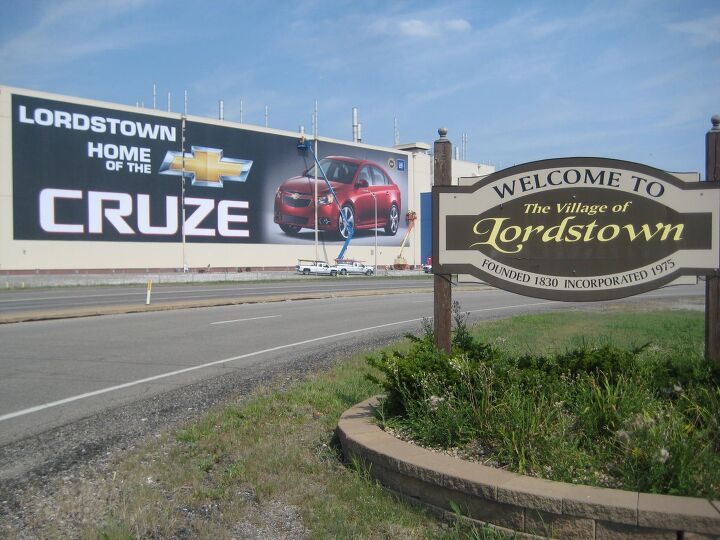
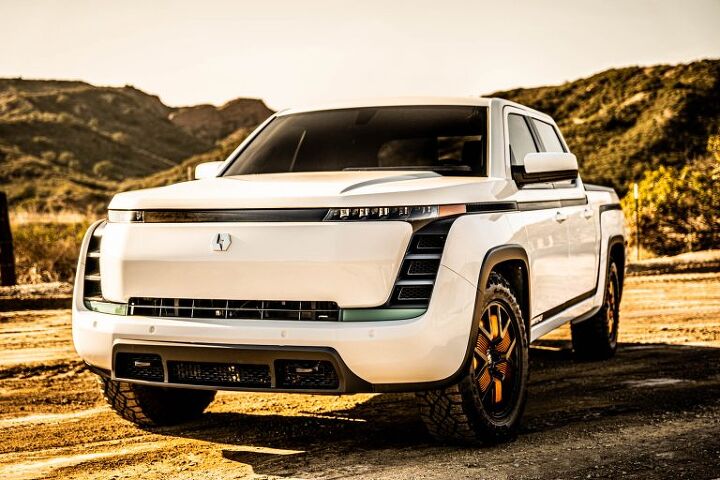


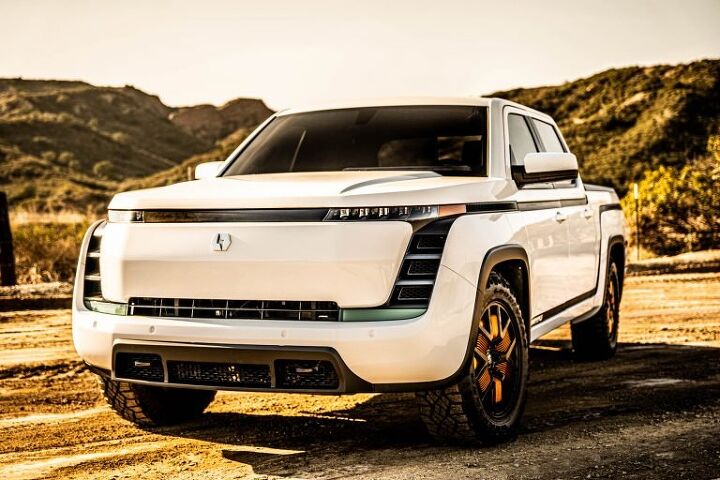

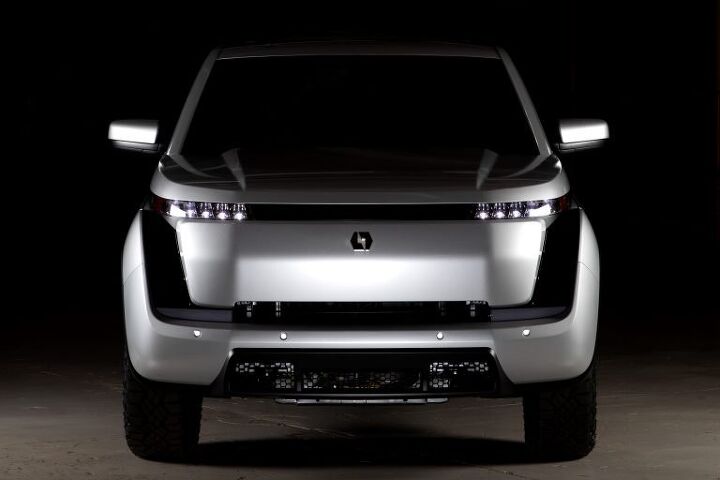

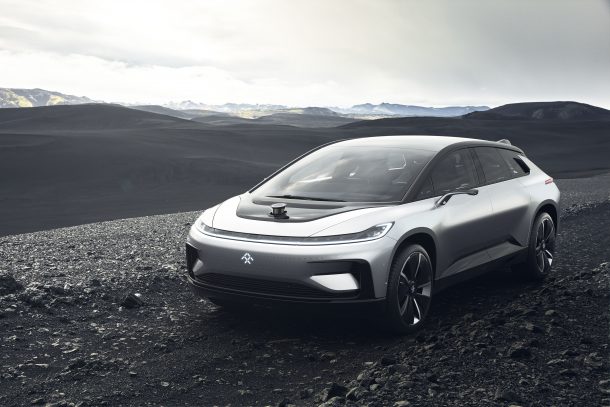



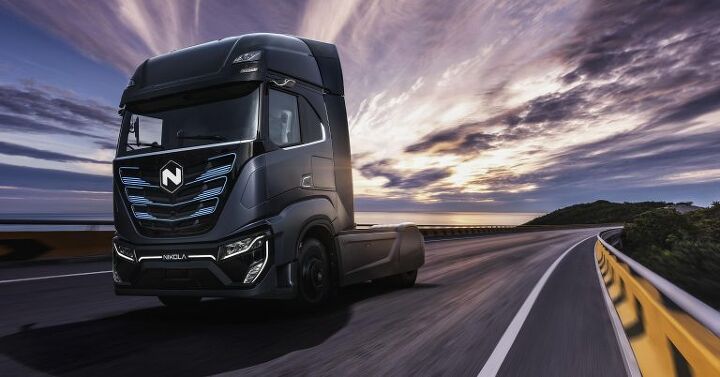
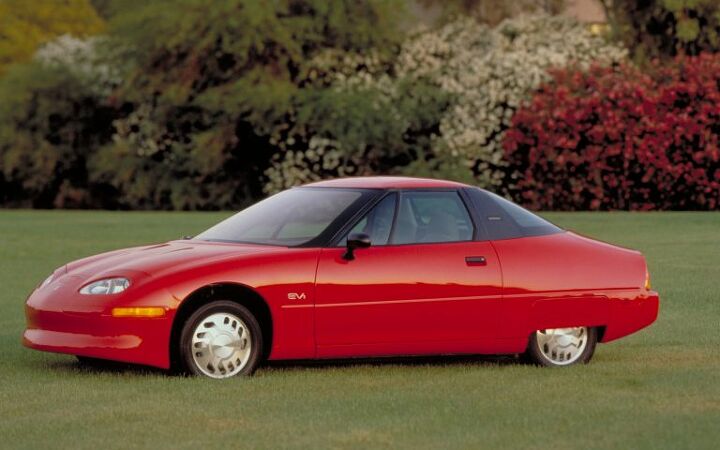












Recent Comments